The White House on Thursday accused Iran of sending troops to assist the Russian invasion of Ukraine, by teaching the Russians how to pilot drones they purchased from Tehran.
“Today we can confirm that Russian military personnel that are based in Crimea have been piloting Iranian UAVs, using them to conduct strikes across Ukraine, including strikes against Kyiv in just recent days,” White House National Security Council spokesman John Kirby said at a press conference on Thursday.
“We assess that Iranian military personnel were on the ground in Crimea and assisted Russia in these operations. Russia has received dozens of UAVs so far and will likely continue to receive additional shipments in the future,” Kirby said.
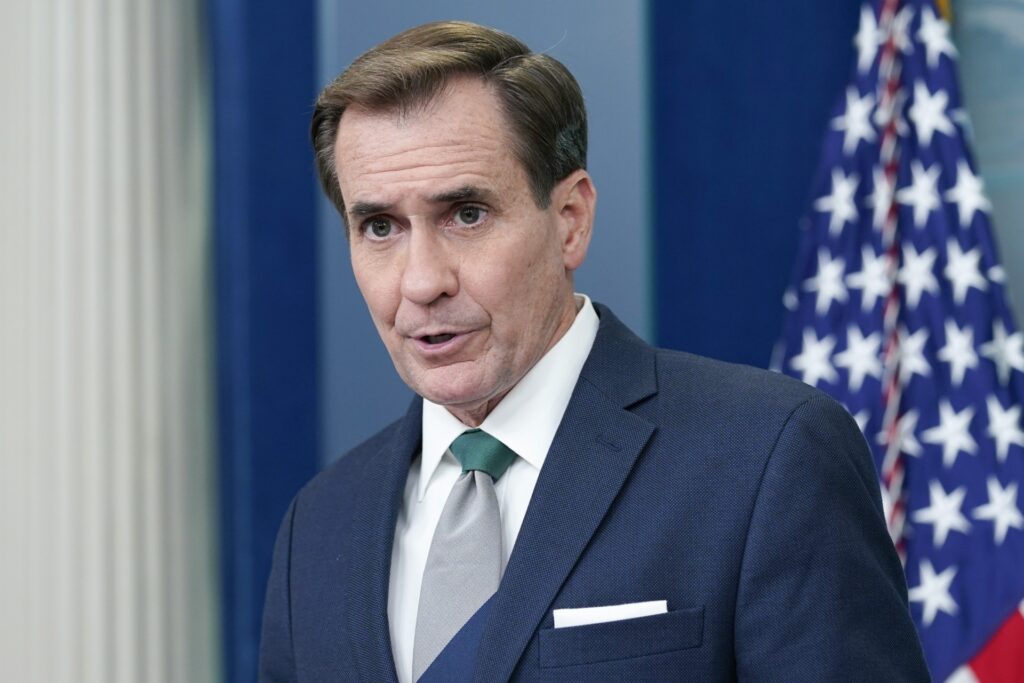
National Security Council spokesman John Kirby speaks during the daily briefing at the White House in Washington, July 27, 2022. (AP Photo/Susan Walsh)
“Furthermore, in light of Russia’s ongoing supply shortages, we are concerned that Russia may also seek to acquire advanced conventional weapons from Iran, such as surface-to-surface missiles that will almost certainly be used to support the war against Ukraine,” he added.
Kirby complained that Iranian and Russian officials “continue to lie” about the involvement of Iranian drones and personnel in the invasion of Ukraine.
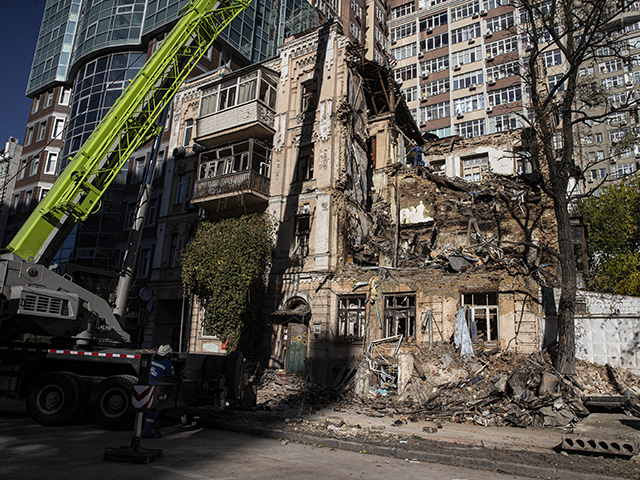
Rescue workers inspect a building destroyed by Russian drone strikes as they continue their field work following the wave of Russia’s attacks in Kyiv, Kyiv Oblast, Ukraine on October 18, 2022. (Metin Aktas/Anadolu Agency via Getty Images)
“They can lie to the world, but they certainly can’t hide the facts,” he said. “And the fact is this: Tehran is now directly engaged on the ground and through the provision of weapons that are impacting civilians and civilian infrastructure in Ukraine — in fact, that are killing civilians and destroying civilian infrastructure in Ukraine.”
Kirby said the United States would take steps to neutralize the Iranian drone threat.
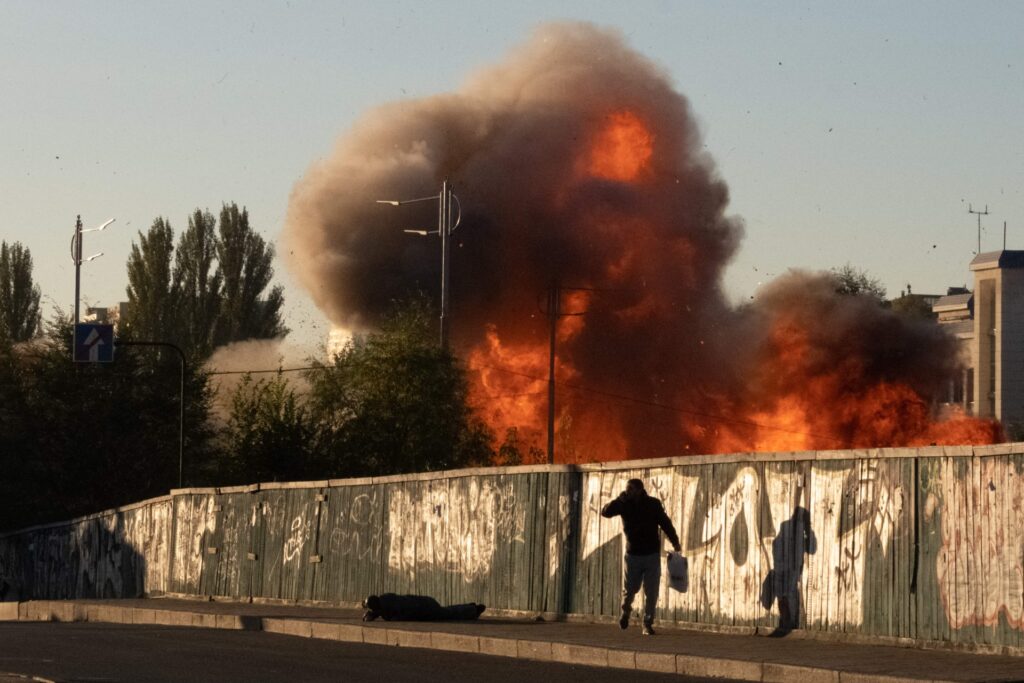
A man falls on the ground following a drone attack in Kyiv on October 17, 2022, amid the Russian invasion of Ukraine. (YASUYOSHI CHIBA/AFP via Getty Images)
“We’re going to continue to vigorously enforce all U.S. sanctions on both the Russian and Iranian arms trade. We’re going to make it harder for Iran to sell these weapons to Russia. We’re going to help the Ukrainians have what they need to defend themselves against these threats. And we’re going to continue to stand with our partners throughout the Middle East region against the Iranian threat,” he said.
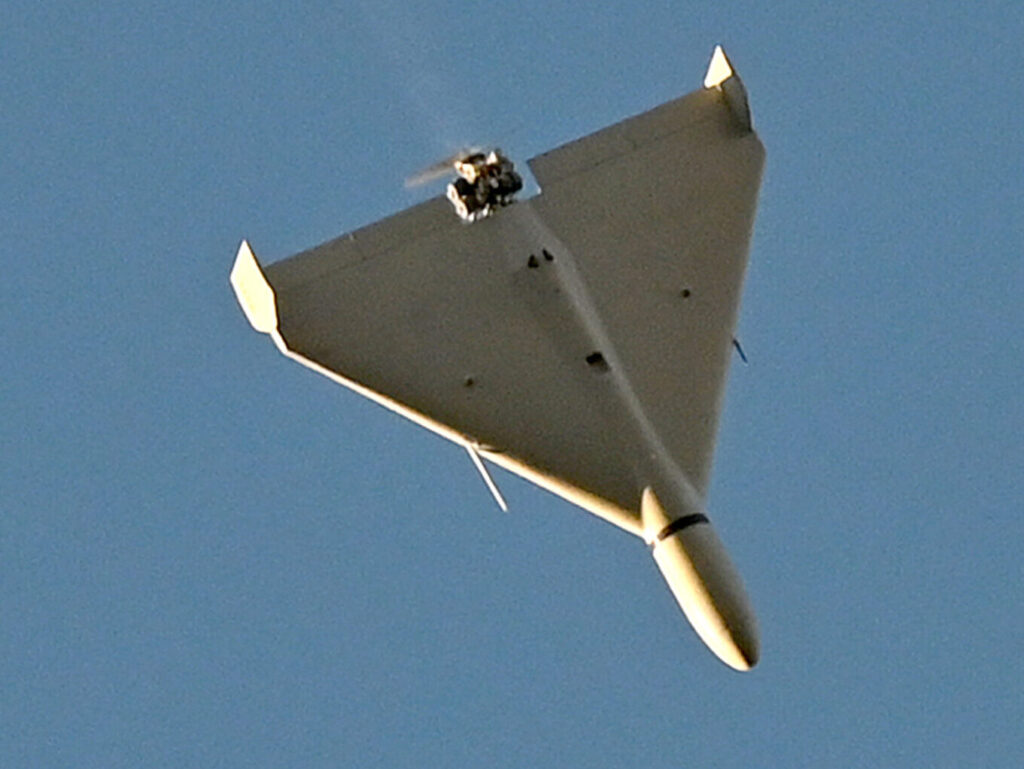
A drone flies over Kyiv during an attack on October 17, 2022, amid the Russian invasion of Ukraine. (SERGEI SUPINSKY/AFP via Getty Images)
Kirby pointed to months of U.S. and allied intelligence warnings about Russia purchasing Iranian drones to replenish its own depleted stock of relatively ineffective UAVs. He predicted the drones provided by Iran would not be enough to “change the course of the war.”
“We’ve said this for months, that Russia had plans to turn to Iran for support. And this is another sign of just how brutal Mr. Putin is willing to be and just how isolated both he and Iran are from the rest of the world,” he charged.
State Department spokesman Ned Price made similar comments on Thursday.
“We can confirm that Russian military personnel based in Crimea have been piloting Iranian UAVs and using them to conduct kinetic strikes across Ukraine, including in strikes against Kyiv in recent days,” Price said.
“We assess that Iranian personnel, Iranian military personnel, were on the ground in Crimea and assisted Russia in these operations. Russia has received dozens of these UAVs so far and will likely continue to receive additional shipments in the future,” he said.
Price, like Kirby, accused the Iranian and Russian governments of lying about the drones, despite “indisputable proof” accumulated by U.S. and allied intelligence, some of which was “put on display before the U.N. Security Council.”
Price became somewhat evasive when reporters asked if Iran’s support for the Russian invasion would put the final nail in the coffin of the Iran nuclear deal, but he conceded that “a deal does not appear imminent.”
“The question is largely academic at the moment,” he said of President Joe Biden’s once-fervent desire to resurrect the Obama nuclear deal, formally known as the Joint Comprehensive Plan of Action (JCPOA).
The Washington Post on Friday quoted two U.S. officials who said American analysts have “examined the wreckage of Iranian-made drones shot down in Ukraine,” and apparently confirmed they are Iranian-built Shahed-136 suicide drones. Pentagon spokesman Brig. Gen. Pat Ryder would not confirm or deny this report during a press briefing.
A Ukrainian official told the Washington Post that Russia is launching its Iranian drones from three bases in Crimea that are outside the reach of Ukrainian artillery.
International journalists on Tuesday published photos of Iranian suicide drones hitting targets in the Ukrainian capital of Kyiv, including civilian targets. The Kremlin nevertheless continued to deny Russian forces are using Iranian drones.
Ukrainian military sources last week claimed members of Iran’s Islamic Revolutionary Guard Corps (IRGC), a designated terrorist organization, were in Crimea teaching Russian forces how to operate Iranian UAVs.
The U.N. Security Council held a closed-door session on Wednesday evening for what U.S. spokesperson Nat Evans called an “expert briefing” on “recent evidence that Russia illegally procured Iranian UAVs that it is using in its war on Ukraine.”
Ukraine’s ambassador to the United Nations, Sergiy Kyslytsya, asked the U.N. on Tuesday to send a team of analysts to inspect the remains of UAVs that were sent by Russia to attack Ukrainian cities. Kyslytsya contended Iran’s drone sales to Russia violated a 2015 U.N. Security Council resolution banning the transfer of UAVs with a range of over 300 kilometers.
At the reportedly heated Security Council meeting on Wednesday, Russia argued the U.N. has no authority to send inspectors to examine the evidence accumulated by Ukraine. Britain and France joined the United States in backing Ukraine’s accusations.
Russian deputy ambassador to the U.N. Dmitry Polyanskiy dismissed the issue as “baseless accusations and conspiracy theories,” and darkly warned the United Nations that Russia might “have to reassess our collaboration” if Secretary-General Antonio Guterres dispatched any of his inspectors to conduct an “illegitimate investigation.”
Iran’s U.N. envoy, Amir Saeid Iravani, likewise rejected “unfounded and unsubstantiated claims” that his country supplied drones to Russia, and insisted the Iranian regime wants a “peaceful resolution” of the Ukraine conflict.
Iravani also warned Guterres not to send investigators to confirm Ukraine’s allegations, claiming such an investigation would lack “any legal foundation” and would be a “misuse” of U.N. Security Council resolutions.
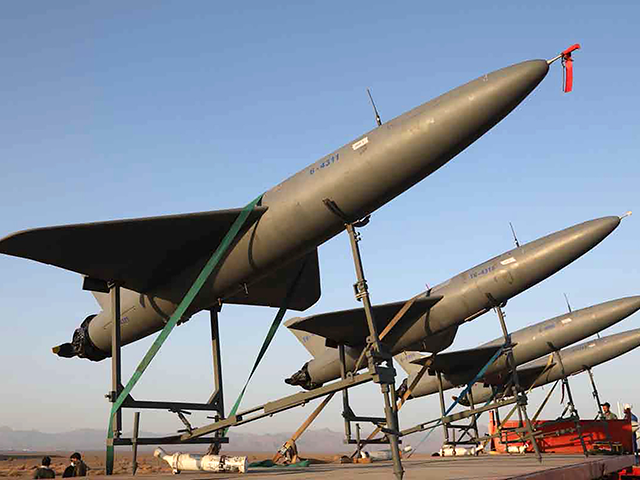
COMMENTS
Please let us know if you're having issues with commenting.